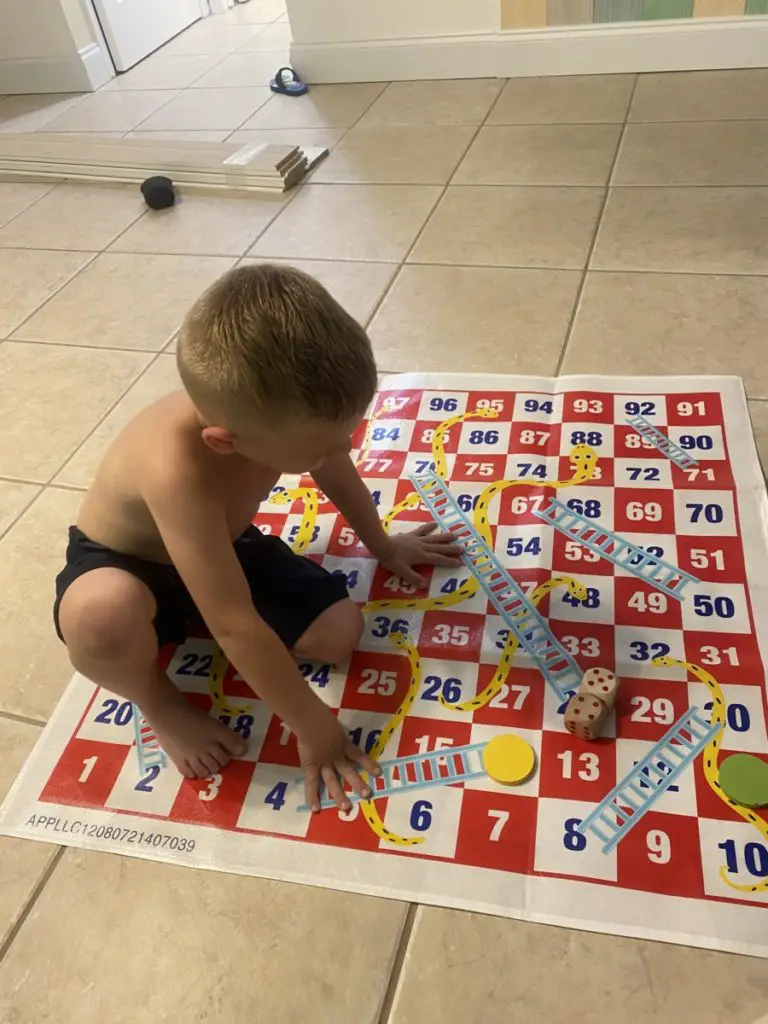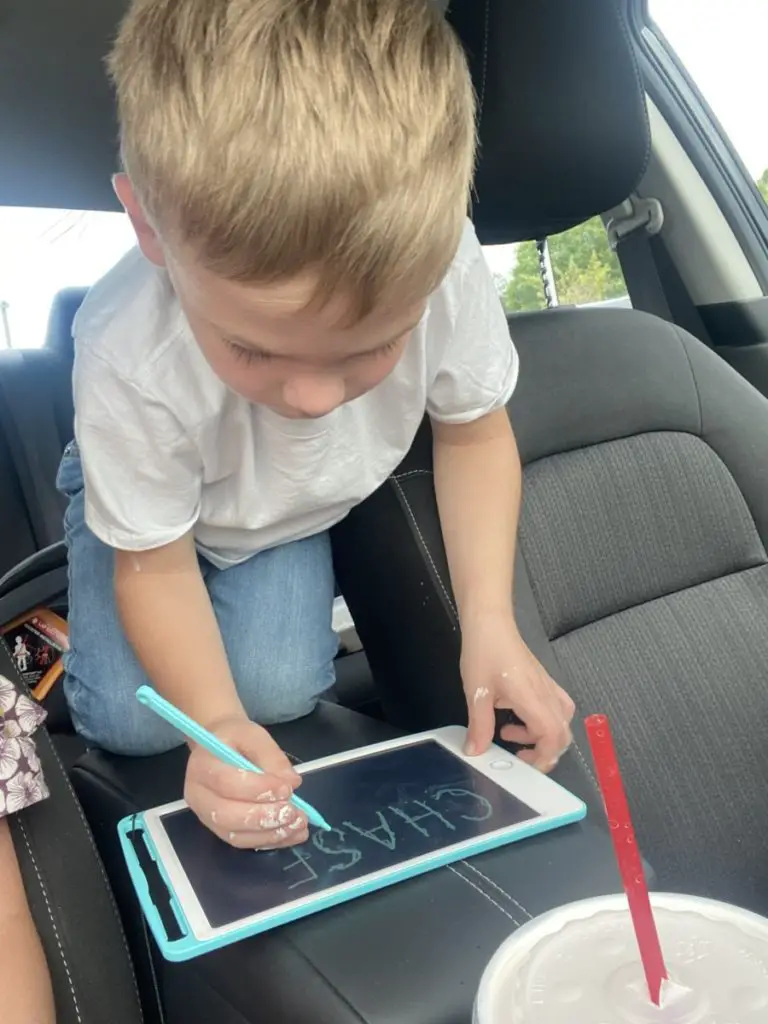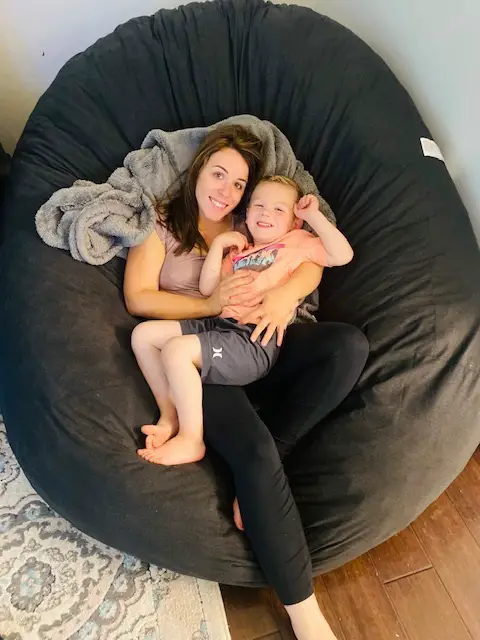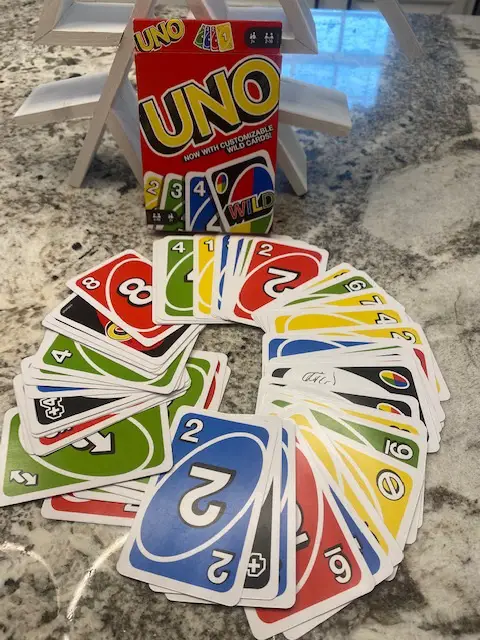Are you the parent of a perfectionist child? Do you find yourself constantly trying to encourage them to relax and not worry so much about making mistakes?
As a recovering perfectionist, I know one thing. It’s exhausting to have to try to achieve perfection, and because it’s nearly impossible to do, you are left feeling down on yourself all the time. I think I accidentally passed that trait onto my son, and now I’m working to undo it.
One might think homeschooling a perfectionist would be amazing, but it can actually be quite difficult. My son doesn’t want to try new things if he isn’t good at them automatically, which makes it difficult to try to educate him. He is afraid of failing and procrastinates doing tasks that he finds difficult. If he colors outside the lines, gets an answer wrong, or writes a letter backward, he wants to stop trying.
Many parents have to deal with perfectionism in their children. While it can be challenging, there are ways to help your child overcome their need for flawlessness. Check out these tips for homeschooling your perfectionist child.
Stop Praising Ability, Performance, and Outcome
Did you know that praising a child’s natural ability, good grade, or sports performance in order to increase their self-esteem can actually have the opposite effect? Well-meaning parents – myself included – struggle with this.
Kids learn that we praise only when they achieve something, so when they aren’t able to do something well, they don’t want to try at all. Kids want to please their parents and they are very concerned with how they appear to us. We are setting a standard that kids have a hard time living up to.
I noticed with my son that he is very excited to answer a question when he is sure of the answer, but if he doesn’t know the answer, he lays his head down, looks upset with himself, and makes excuses of why he can’t answer the question, instead of simply telling me he doesn’t know. He doesn’t want to disappoint me. (He wouldn’t, obviously, but his perfectionist mind doesn’t know that.)
What ends up happening is that he stops wanting to learn new things because it makes him feel less than perfect.
By praising children’s good performance and not their efforts, we are inadvertently teaching our children not to take risks, and it instills a fear of failure in them.
Children start to avoid difficult tasks, just like my son avoids answering my questions when he doesn’t know what sound a letter makes.
Here’s what NOT to say:
“That is the prettiest picture I’ve ever seen.”“Awesome! You scored 20 points in your basketball game!”“An A+ on your math test?! Great job! Let’s go out for ice cream to celebrate your good grade!”“You are so good at building. I think you’re going to be an architect one day.”“Good job! You’re so smart!”
It seems like a great way to praise kids, but what happens when they get a C on a test they studied hard for? What happens if they play hard in a game but don’t score any points? Does assisting other players not count for anything? What if they color outside of the lines? Is it no longer a pretty picture?
This isn’t just my opinion. Tons of research has been done about this topic.
So what can we do differently? I’m glad you asked.
Instead of praising your child’s outcome, praise their effort.
Praise things that they can repeat, such as working hard on a science project or studying hard.
Don’t be concerned about their grades. Be concerned about how hard they worked for their grade.
When I was in high school, I could read my notes 1 time and get a 100% on a test. I barely had to study at all because I have a photographic memory. There was a student in my class that would study for HOURS, several nights a week before a test, to get a C. He should have received much more praise than I did, but sadly, he did not.
Here are some ways you can praise your child’s effort instead of their performance.
- “You didn’t give up!”
- “Thank you for doing your best today.”
- “You have really been paying attention today.”
- “I know you had to build your science project 3 times. I really love how it turned out. “
- “I don’t care if your handwriting is perfect, but I do care if you tried your best.”
- “I noticed you scored 2 goals in your soccer game. I think it’s because of how hard you’ve been working in practice to build your strength and skills.”
What ends up happening, especially for a perfectionist child, is they start realizing you are praising their hard work instead of their outcome, so they want to work hard. The pressure to do things perfectly melts away.
Make an Effort Chart
Instead of making a reward chart, make an effort chart. When you notice your child giving their best effort on their schoolwork, they get a sticker.
You could give them stickers for trying to learn something new. Notice I said for TRYING to learn something new, not SUCCEEDING in learning something new.
Let’s say you are working on fractions, and your child will not work on it because he doesn’t understand it yet. No sticker for that day. The next day, he will probably give you more effort because he wants the reward of the sticker on his effort chart. (By the way, learning fractions is so much easier using physical objects. We LOVE using Melissa and Doug’s Wooden Pizza Set for learning fractions.)
Give Multiple Choice Options
Right now, we are working on learning to identify numbers 0-100. There are a bunch of numbers he already knows, but he gets tripped up on some of the numbers. At first, I started using flashcards and I would ask him to say the number.
I quickly realized this wasn’t the best method. He didn’t want to say the wrong answer. So I pivoted as homeschool parents often do.
I laid all the flashcards on the floor and asked him to give me the ones he knew, one at a time. He got all of them right except for 8. Of the remaining 8, I would hold one up at a time, and ask “Is this a 22 or a 13?” He would eagerly answer me because he was getting the answer correct when he had options.
This could also apply to learning sight words. Instead of flipping through flashcards and asking your child to tell you the word, try switching it up. Lay the flashcards on the floor and say “bring me the flashcard that says “you.” They are much more likely to participate, and once they learn the words, they will be happy to answer your questions without multiple choice options.

We are also loving the Sight Word Swat Game (pictured above). Each word is on a card in the shape of a fly, and the child uses a fly swatter to smack the sight word!
Set Expectations with Your Child
Each morning over breakfast, I set my expectations for the day with my son. I go over all the plans for the day, what we will be learning about, and what I expect from him. Every day I say “I don’t expect your work to be perfect, but I do expect it to be your best.”
Your expectations may be different than mine, but the goal is the same. Let your perfectionist child know that they are not expected to be perfect.

Teach New Concepts in Their Preferred Learning Style
There are 4 main learning styles for children:
Kinesthetic – This type of learner wants to do it themselves and learns best by moving. A good example of a kinesthetic learner is a child who has trouble sitting still and enjoys playing physical games to learn.
Auditory – This type of learner learns best by hearing. An example of an auditory learner is a child who enjoys listening to songs to learn phonics.
Visual – This type of learner learns best by seeing. A good example of a visual learner is watching a video to learn how to memorize multiplication tables.
Reading and Writing – This type of learner learns best by reading and writing the material. An example of this is reading a chapter in a book while taking notes.
When you introduce a new concept to your perfectionist child, it is important to use their preferred learning style. Parents tend to try to teach using their own preferred learning style.
For example, I learn best by reading and writing, so it would be easy for me to teach my son by reading him a chapter in a book and asking him to draw a picture of what the story was about. But my son is a kinesthetic learner (I suspect this may change when he is older) so we play games and move around to learn new things. He tends to participate and enjoy it much more when I adapt to his learning style.

Tonight, instead of reading and writing numbers, we played Snakes and Ladders. Highly recommend this game! Each space is numbered, 1-100. It’s fun, competitive, and educational. He practiced learning his numbers without feeling like he was doing school work. Every time he landed on a space, I asked him what the number was. He wasn’t feeling pressure to get it right because we were just playing a game.

Show Your Child When You Make Mistakes
Show your child that you aren’t perfect. Let them know it’s ok to not be perfect.
A few days ago, we were working on tracing letters. I usually trace with him because I think it’s fun. On one letter, I accidentally got off the dotted line. I picked up my paper, showed him my mistake, and said “oops! See? Even Mommy makes mistakes.” He giggled, and suddenly he didn’t feel so much pressure to show me perfect work.
Tell your kids your mistakes and how you overcame them. Ask them for advice on how to solve problems while you’re at it. It will help with their problem-solving skills.
By the way, if your kids are working on tracing, and they struggle with perfectionism, trace using dry erase boards! They can just wipe their mistakes away and try again. My son loves using a dry erase board. You can even get multi-colored dry erase markers with built-in erasers to make it more fun!
Explain That They Shouldn’t Know New Concepts Yet
Does your child feel like they should know everything already when you are trying to teach them something? I’m glad I’m not alone.
Reassure your child they this is something new that you’ve never taught before, so they shouldn’t know the answer yet. It seems simple, but it works.
Ask Lots of Review Questions
Perfectionist children love to get the answers right, we all know that.
When you are teaching new concepts, be sure to throw in some review questions that they should know the answers to.
Mix the new concepts and learned concepts together in a lesson.
For example, if you’re teaching what sounds the letters make, ask your child what the letter is first.
If you’re teaching the state capitals, and they’ve already learned where the states are on the map, ask them to point to the state on the map. They will feel proud of themselves for answering correctly, you’ll know they’ve retained previous information, and it will keep them engaged in listening to the new material you are teaching.

Don’t Watch Them Too Intently
Try not to hover too closely while they are working independently. It’s our tendency to watch closely to help, but I’ve found it more beneficial for my son when I back off a little bit.
A few days ago, we were working on him writing his name. Sometimes he writes a few letters backwards, so he doesn’t want to try. I told him I wasn’t going to watch until he was done and he was much more willing to try. It gave him time to erase letters he didn’t like and rewrite them without me seeing the mistake.
We love using a writing tablet because he can just push a button and it erases it if he wants to try again.
Exhibit Non-Perfectionist Traits Yourself
Ok, so I’m the guilty one here. I’m the reason my son has become a little perfectionist – he’s a mini version of me. So I’m working on it.
I’m a neat freak, but I’m trying to not expect perfection. For a neat freak, it’s a difficult transition from having the house showroom ready (before kids) to living with a 5-year-old boy. Now, we do a few chores in the morning and clean up toys before bed. There might be blankets unfolded, a few dishes in the sink, and laundry that needs put away, but we don’t need to be perfect. So I point those things out to my son.
I struggle with being flexible, and so does my son. But any chance I get to explain flexibility and compromise to my son, I do.
When plans change, I cringe. I have a hard time adapting, but it’s a good lesson for my son, so I try to be a good example. Maybe we have plans to go to the pool, but it rains. We have to adapt. Our perfect plan didn’t work out.
Lastly, I’ve noticed that I don’t like getting feedback for something I’ve done that isn’t “perfect.” I’ve set myself up to have a child just like me. So, instead of getting upset with myself or the person giving the feedback, I use it as a lesson for myself and my son.
Kids model their parents, so I need to be the example to him of non-perfection.

Give Plenty of Time to Relax
Make sure your child knows it is ok to take downtime to relax. Perfectionist children tend to overwork themselves because they have set unrealistic expectations for the level of work and the amount of work they can achieve in one day.
I know, because I used to do the same thing at work. It was exhausting. Then I realized that the rules I was putting on myself were imaginary. My boss hadn’t set them, I had.
Now, we have planned time to relax and it recharges both of us.

Don’t Let Your Child Win
Kids need to learn how to lose – especially perfectionist children.
It’s ok to fail, and it’s ok to lose. Play board games or cards with your kids, and if they win, great! If they lose and have a hard time, teach them a lesson about good sportsmanship and competitiveness. Real life isn’t always success, winning, and awards. Sometimes, it’s losing a game or failing. And that’s ok.
Some of our favorite games to play are Uno, Battleship, Trouble, Tic-Tac-Toe, and Guess Who. Since we are a traveling homeschool family, we make sure to purchase the travel options any chance we get.
Teach Child That They Can Do Hard Things
I’ve started a new mantra with my son after reading Glennon Doyle’s book “Untamed,” which has nothing to do with homeschooling, by the way. In her book, the phrase “I can do hard things” became her mantra, and we’ve adopted it as our mantra now.
When my son is doing something and says “it’s too hard” – I say “we can do hard things.” Usually, this happens when he is working on a lesson that he doesn’t fully understand.
I explained to him that I was completely overwhelmed and felt out of my comfort zone when I started this website but I can do hard things. And you know what? I’ve modeled to him that when things get hard – like when my website crashed – I didn’t give up. I can do hard things.
When the going gets tough, the tough get going. We can do hard things.
Conclusion
If you’re a parent of a perfectionist child, you know the drill—they want to do everything just right and they get upset when they make mistakes. This can be especially challenging when it comes to homeschooling. But don’t worry, we’ve got your back!
In this post, we shared 13 tips for how you can help your perfectionist child thrive in their homeschooling experience.
Have you tried any of these techniques? Let us know in the comments below. And if you need more help, ask away! I’ve been there (still am!) and I’m here to support you!


